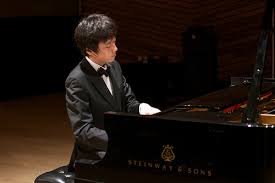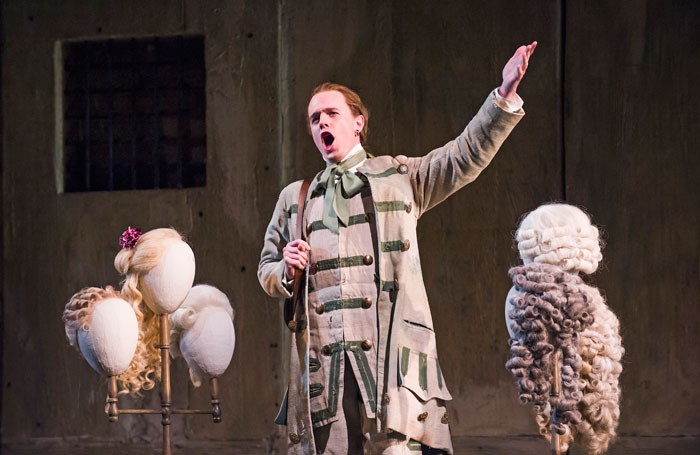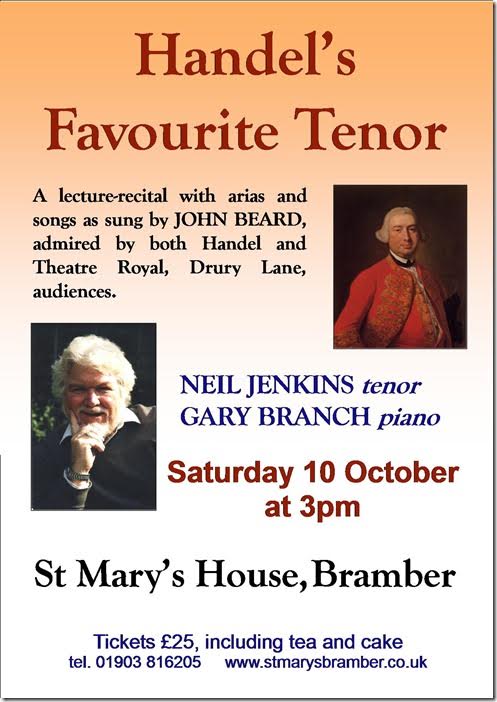Mozart: Cosi fan tutte
Salzburg Festival production by Sven-Eric Bechtolf
Vienna Philharmonic Orchestra, Christoph Eschenbach
UNITEL CLASSICA 2072748
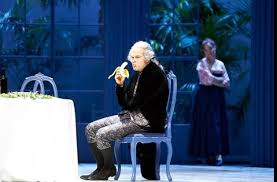
This is a charming approach to Cosi which does not strain the music yet produces lively characterisation and believable interaction. Set within a large conservatory, there is a lot of hiding behind plants, and dipping into the central pool, but nothing too far-fetched. At its heart is the finely honed Don Alfonso of Gerald Finley – is there anything that is outside of his remarkable talents? But the rest of the cast are equally pleasing and the orchestral sound is brisk and apt throughout.
Smetena: Ma Vlast
Czech Philharmonic orchestra, Jirí Belohlávek
UNITEL CLASSICA 2072758
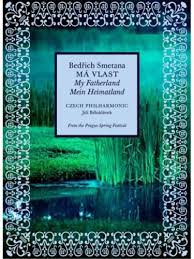
Recorded live during the Prague Spring Festival in 2014 I find this a totally convincing reading of the score from players who know it well but treat it with absolute respect. The brass sounds Eastern-European rather than French and the strings have a bite which gives the reading its individual edge.
Knowing the hall from a number of visits, the acoustic is well represented here. Let us hope we get future releases from both the spring and winter festivals.
Cilea: L’Arlesiana
Orchestra Filharmonica Marchigiana, Francesco Cilluffo
DYNAMIC 37688
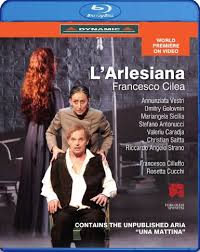
This is a recording of Rosetta Cucchi’s production for the Teatro Pergolesi in Jesi, Italy, in 2013. I’Arlesiana is no longer a familiar work though it once had strong following. Its hero Federico is obsessed by the unseen Girl from Arles who eventually drives him to suicide. In this production she is very much a reality, turning up like Banquo’s ghost on regular occasions and at one stage all the women in the chorus appear as the beloved. As an approach it works well and the singing is convincing though one could see that it could be a vehicle for a star tenor who wanted to milk it emotionally. Thankfully that is not the case here and Dmitry Golovnin does not overplay his insanity.
The setting gives it an air of Greek tragedy which is effective and the orchestral support is strongly founded.
Shakespeare: Julius Caesar
Shakespeare’s Globe production by Dominic Dromgoole
OPUS ARTE OA 1174D
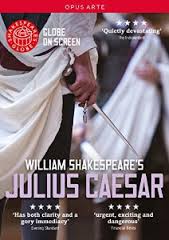
One of the great virtues of Shakespeare’s Globe on the South Bank is the close rapport between stage and audience. Dominic Dromgoole makes a virtue of this in the opening scenes of this production as the audience are addressed as the mob, and are similarly encouraged to be a part of the play in all of the public scenes. It is reasonable to assume that this is actually far closer to Shakespeare’s own experience of theatre than the hushed, darkened silence of most contemporary productions. Here the action moves swiftly and at times bloodily, but the text is never garbled or skated over. The barbarity of the music adds an extra frisson and the shifts between Roman, Elizabethan and contemporary history are always apt and often uncomfortable. If the DVD does not quite give the excitement of actually being there, it comes very close.
Mahler: Das Lied von der Erde (arr Schoenberg)
Linos Ensemble, Ivonne Fuchs, Markus Schafer
CAPRICCIO C 5136
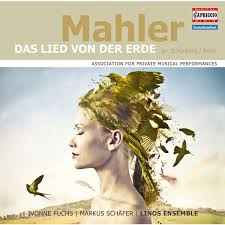
This comes as something of a shock to those of us who know the original work well. The orchestration is full enough to be mistaken at first for the original but then one gets the feeling that it is not quite right. At first I thought the volume was wrong, or the balance, but then I remembered this was Schoenberg’s chamber edition and suddenly everything fell into place. It puts more weight onto the voice, as there is no possibility of them vanishing beneath the full orchestra but at the same time allows for more subtlety which it certainly gets. Der Abshied is particularly impressive.
Bliss: Morning Heroes; Hymn to Apollo
BBC Symphony Orchestra and Chorus, Sir Andrew Davis
Samuel West, orator
CHANDOS CHSA 5159
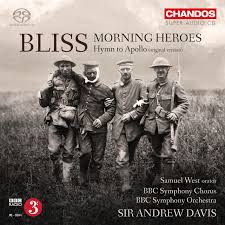
I reviewed the live performance of Morning Heroes at the Barbican Hall, on 15 May 2015, and my full review can be found elsewhere on this site. I am still not fully convinced by the structure using a narrator, no matter how good Samuel West may be, but it is certainly good to add this to the range of works available to commemorate the anniversary of WWI. The shorter Hymn to Apollo is equally rarely heard and so a useful addition, particularly as this appears to be its only recording.
Schumann: Davidsbundlertanze & other piano works
Imogen Cooper, piano
CHANDOS CHAN 10874
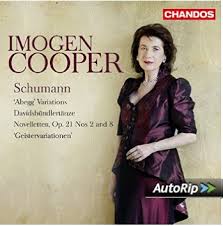
The recording covers a number of sets of variations ranging from the early Abegg collection, which was the composer’s first published work, to the very late Geistervariations. At the heart of the collection is Clara Schumann for whom many of them were specifically written. Imogen Cooper traces the development of Schumann’s art through these sets and shows not only the subtlety of his writing but the ever increasing range of his imagination. An impressive collection and one I shall go back to.
Beethoven: Piano Sonatas
Op2No2; Op10No1; Op78; Op110
Angela Hewitt, Fazioli piano
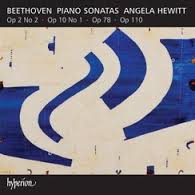
This is presumably volume five although it does not actually state that it is. However as the latest edition to what will presumably be a complete Beethoven piano sonatas from Hyperion it is very welcome. The four works cover a very wide range from the early Haydnesque Op2 No2 to the concentrated power of Op78 and the gentler lyricism of Op110. Angela Hewitt brings to these her accustomed warmth and technical finesse. Roll on volume six.

